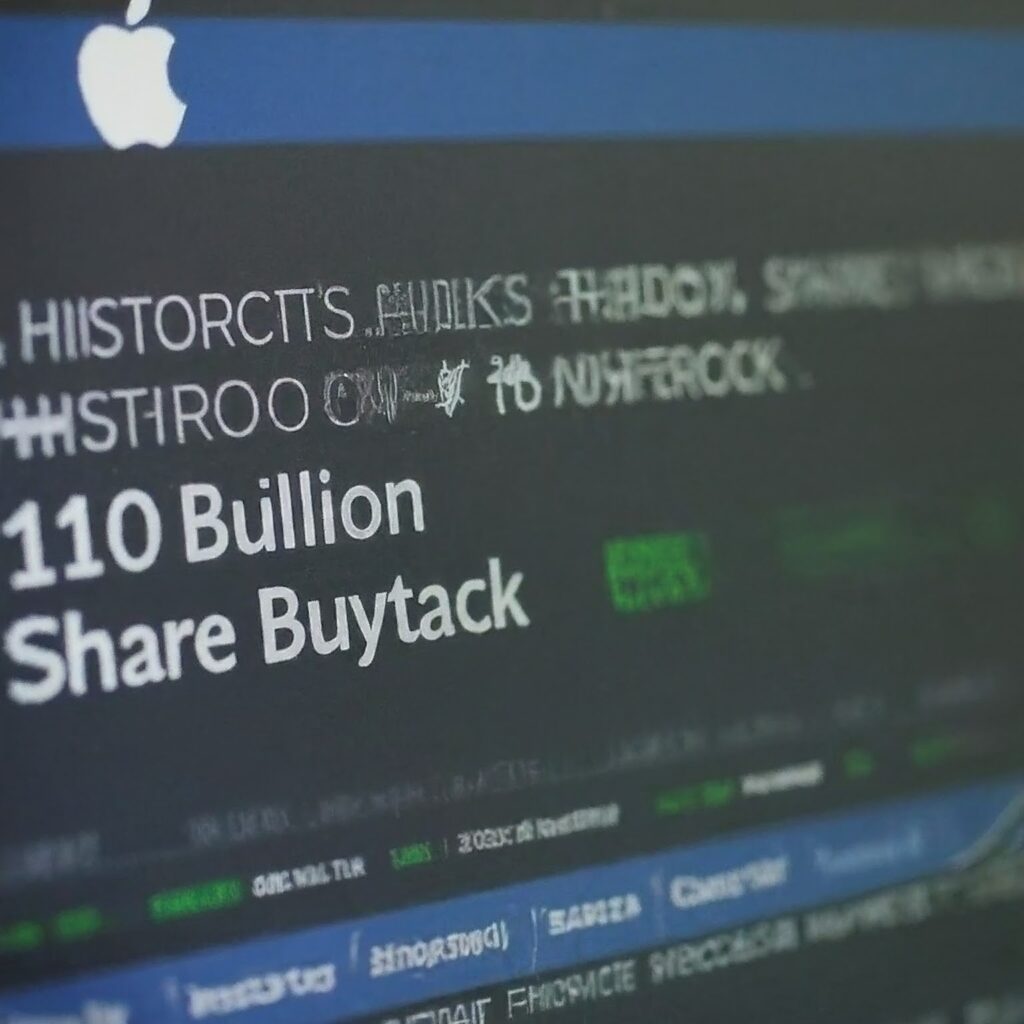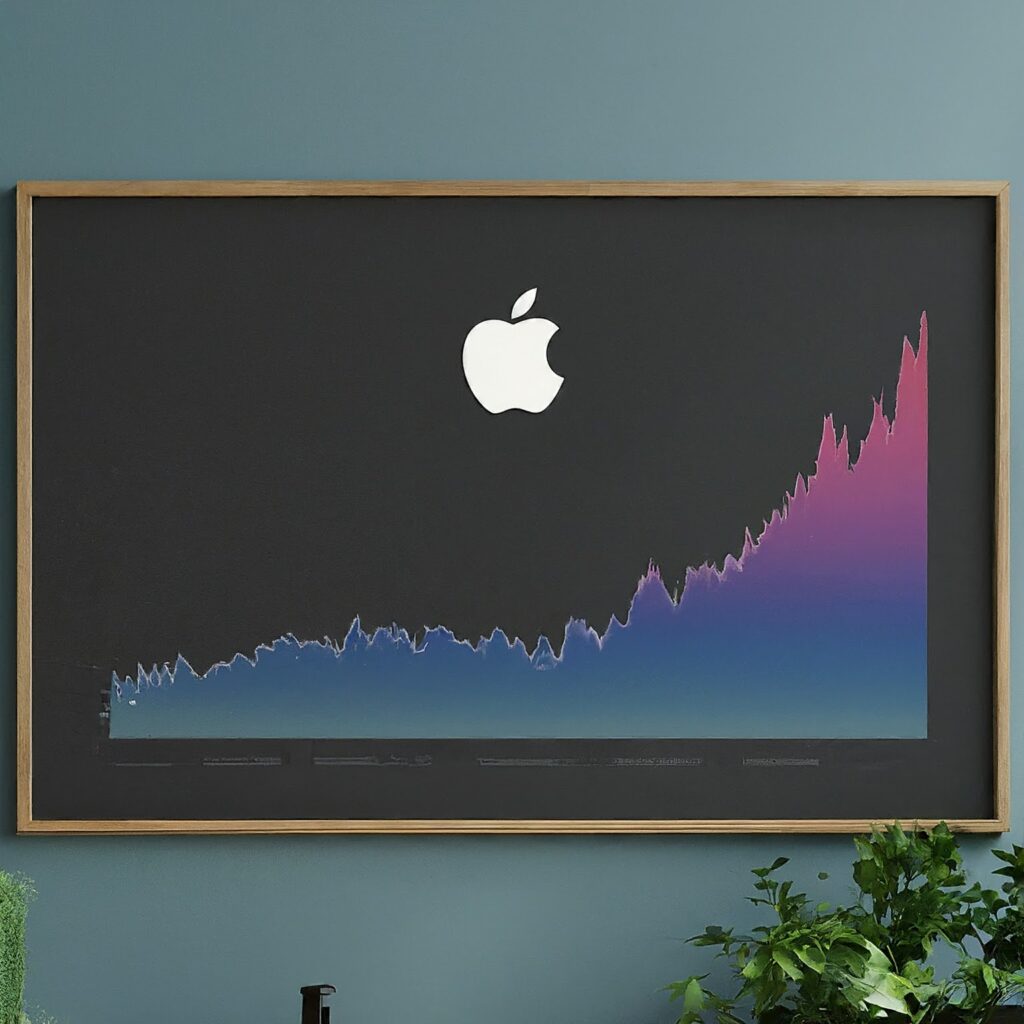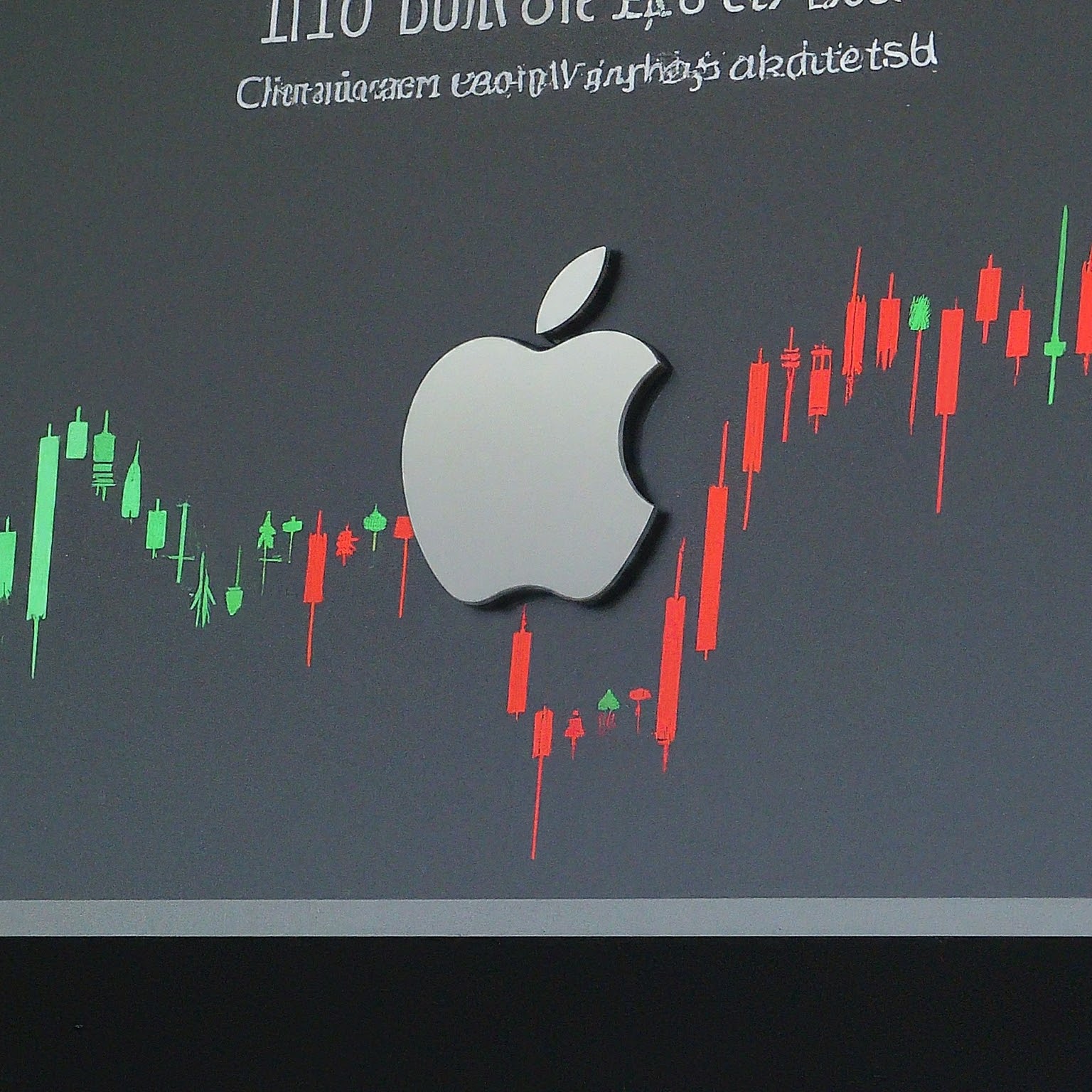Apple’s Unprecedented $110 Billion Buyback:
Apple’s recent announcement of a record-breaking $110 billion share buyback plan has sent shockwaves through the tech industry and the broader market. This massive repurchase program, the largest in U.S. corporate history, underscores the tech giant’s transition from a high-growth innovator to a value-focused stock that prioritizes returning capital to shareholders.
The move comes at a critical juncture for Apple, as it grapples with declining iPhone sales, regulatory challenges, and slowing growth in key markets like China. The $110 billion buyback, which surpasses Apple’s previous record of $100 billion set in 2018, signals a strategic shift for the company.
How does apple’s $110 billion share buyback compare to other companies’ share buybacks
Apple’s $110 billion share buyback stands out as one of the largest in corporate history, surpassing its own previous record of $100 billion set in 2018. This buyback is significant not only in terms of its size but also in signaling Apple’s shift towards a more value-oriented approach that prioritizes returning money to shareholders over aggressive expansion or research and development expenditures.
Comparing Apple’s buyback to other companies’ share repurchases, it is noteworthy that six out of the top 10 buybacks in U.S. history belong to Apple, highlighting the tech giant’s consistent commitment to returning capital to shareholders[1]. In contrast, other major corporations like Chevron Corp. and Alphabet Inc. have also engaged in substantial buyback programs, but Apple’s recent $110 billion buyback sets a new precedent in terms of scale and impact on the market.
Furthermore, Apple’s buyback represents approximately 4% of the company’s total value, emphasizing the significant influence this buyback can have on the stock price as it continues to retire a substantial portion of its total shares outstanding. This strategic move not only boosts Apple’s earnings per share but also contributes to the company’s market performance and investor confidence.

Boosting Earnings Per Share at the Expense of Innovation?
Over the past decade, Apple’s aggressive share repurchase program has been a key driver of its earnings per share (EPS) growth, which has outpaced its actual net earnings growth by a significant margin. This reliance on financial engineering to prop up its stock price has raised concerns among some analysts and investors.
“If Apple were to cut back on buybacks, either due to negative earnings growth, high interest rates, or potential corporate tax changes, its premium valuation could diminish,” warned one analyst. This suggests that Apple’s current success may be more dependent on its ability to continue buying back shares than on its capacity to innovate and drive organic growth.
Transitioning to a Value Stock?
Apple’s decision to authorize the record-breaking buyback has been interpreted by some as an acknowledgment that the company is transitioning from a high-growth tech giant to a more mature, value-oriented stock. This shift is reflected in the company’s focus on returning capital to shareholders rather than investing heavily in research and development or expansion.
“Apple may be acknowledging that they are becoming a value stock that returns money to shareholders rather than a high powered growth stock that needs its cash for R&D or expansion,” noted Steve Sosnick, chief strategist at Interactive Brokers.
This transition could have significant implications for Apple’s long-term strategy and investor appeal. As the company shifts towards a value-oriented approach, it may face increased pressure to maintain its dividend and buyback programs, potentially limiting its ability to invest in new products and technologies that could drive future growth.
Navigating Regulatory Challenges and Slowing Growth
Apple’s record buyback announcement comes amid a challenging landscape for the company. It faces ongoing regulatory scrutiny from both U.S. and EU antitrust authorities, which could impact its operations and market strategy. Additionally, the company has reported a 10% decline in iPhone sales, suggesting weak demand for its latest product lineup.
The slowdown in China, Apple’s second-largest market, is particularly concerning. The company’s sales in the greater China region have continued to decline, underscoring the importance of the Chinese market to its overall performance.
Balancing Shareholder Returns and Innovation
As Apple navigates these headwinds, the company’s decision to allocate such a significant portion of its resources to share buybacks raises questions about its ability to maintain its innovative edge. While returning capital to shareholders can be a prudent strategy, it should not come at the expense of investing in the future.
“The point being, this headline says ‘over $100 Billion share buyback’ like that is huge and out of the norm, but if you account for inflation, it’s not that much different from previous years,” noted one Reddit user. This perspective highlights the need to consider the broader context and long-term implications of Apple’s buyback strategy.

What is the impact of apple’s $110 billion share buyback on the company’s financials
Based on the search results, Apple’s historic $110 billion share buyback plan is expected to have the following key impacts on the company’s financials:
- Boosting Earnings Per Share (EPS): Over the past decade, Apple’s aggressive share repurchase program has been a key driver of its EPS growth, which has outpaced its actual net earnings growth. The $110 billion buyback is likely to further boost Apple’s EPS by reducing the total number of outstanding shares.
- Signaling a Shift Towards Value Stock: The massive buyback suggests that Apple is transitioning from a high-growth tech company to a more mature, value-oriented stock that prioritizes returning capital to shareholders over investing heavily in R&D or expansion.
- Potential Risks to Long-Term Innovation: Some analysts have expressed concerns that Apple’s increasing reliance on share buybacks to drive earnings growth could come at the expense of investing in future innovation and product development.
- Improving Stock Price and Market Valuation: The buyback announcement has already driven a surge of up to 7.9% in Apple’s stock price in after-hours trading, potentially increasing the company’s market value by over $190 billion. This is because as the supply of shares decreases, prices typically rise, assuming the underlying business remains strong.
- Maintaining Shareholder Returns: In addition to the record buyback, Apple also raised its quarterly dividend by 4%, underscoring its commitment to returning a substantial portion of its profits to shareholders.
Conclusion
Apple’s historic $110 billion share buyback plan is a bold move that reflects the company’s shifting priorities and the challenges it faces. While the buyback may provide a short-term boost to its stock price and earnings per share, it also raises concerns about the company’s long-term innovation and growth prospects.
As Apple transitions towards a more value-oriented approach, it will need to strike a delicate balance between rewarding shareholders and investing in the future. Failure to do so could jeopardize the company’s position as a technology leader and leave it vulnerable to disruptive competitors.
Ultimately, the success of Apple’s buyback strategy will depend on its ability to navigate the complex regulatory landscape, revive its core product sales, and develop new revenue streams that can drive sustainable growth. Investors and analysts will be closely watching to see how the tech giant navigates these challenges in the years ahead.
